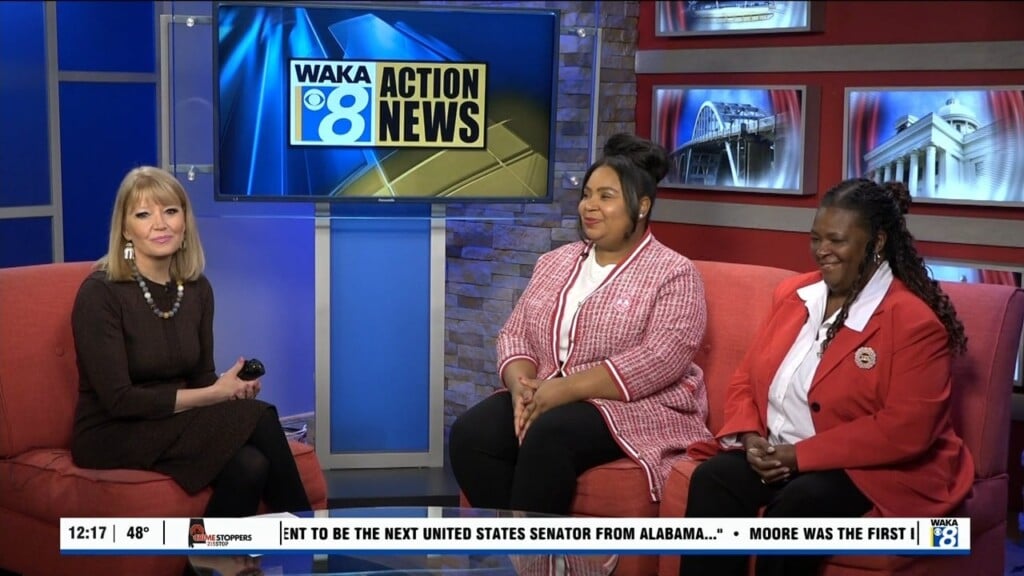ACTION 8 UPDATE: Gov. Kay Ivey signs bill protecting in vitro fertilization providers from liability
By KIM CHANDLER Associated Press
ACTION 8 UPDATE: Gov. Kay Ivey signed legislation into law Wednesday shielding in vitro fertilization providers from potential legal liability raised by an Alabama Supreme Court ruling that equated frozen embryos to children.
The decision by the Alabama Supreme Court last month raised concerns about civil liabilities for clinics and prompted an outcry from patients and other groups. Three major IVF providers paused services, including UAB hospital in Birmingham.
The new law protects providers from lawsuits and criminal prosecution for the “damage or death of an embryo” during IVF services.
Republicans in the state Legislature proposed the lawsuit immunity as a way to get clinics reopened. They did not take up a bill that would address the legal status of embryos.
“I am pleased to sign this important, short-term measure into law so that couples in Alabama hoping and praying to be parents can grow their families through IVF,” said Ivey, a Republican.
Sen. Tim Melson (R-Florence), the bill sponsor, said he was “just elated to get these ladies back on schedule.”
Doctors from Alabama Fertility, one of the clinics that had paused IVF services, watched as the bill got final passage. They said it will allow them to resume embryo transfers “starting tomorrow.”
“We have some transfers tomorrow and some Friday. This means that we will be able to do embryo transfers and hopefully have more pregnancies and babies in the state of Alabama,” Dr. Mamie McLean said after the vote.
The state Supreme Court had ruled that three couples whose frozen embryos were destroyed in an accident at a storage facility in Mobile could pursue wrongful death lawsuits for their “extrauterine children.” The ruling, treating an embryo the same as a child or gestating fetus under the wrongful death statute, raised concerns about civil liabilities for clinics.
House Democrats proposed legislation last week stating that a human embryo outside a uterus cannot be considered an unborn child or human being under state law. Democrats argued that was the most direct way to deal with the issue. Republicans have not brought the proposal up for a vote.
“I think there is too much difference of opinion on when actual life begins. A lot of people say conception. A lot of people say implantation. Others say heartbeat. I wish I had the answer,” said Melson.
Melson, who is a doctor, said lawmakers may have to come back with additional legislation but said it should be based on “science not feelings.”
The bill passed Wednesday says that “no action, suit, or criminal prosecution for the damage to or death of an embryo shall be brought or maintained against any individual or entity when providing or receiving services related to in vitro fertilization.”
The immunity would be retroactive but excludes pending litigation. Civil lawsuits could be pursued against manufacturers of IVF-related goods, such as the nutrient-rich solutions used to grow embryos, but damages would be capped and criminal prosecution would be forbidden.
The American Society for Reproductive Medicine, a group representing IVF providers across the country, said the legislation does not go far enough. Sean Tipton, a spokesperson for the organization, said the legislation does not correct the fundamental problem, which he said is the court ruling “conflating fertilized eggs with children.”
Republican Sen. Larry Stutts, who represents northwest Alabama and is an obstetrician and gynecologist who cast the lone no vote in the Senate, said the bill is an “IVF provider and supplier protection bill” and does not protect patients or their embryos.
“It is actually limiting the ability of mothers who are involved in IVF to have recourse and it is placing a dollar value on human life,” Stutts said.
During debate in the House of Representatives on Tuesday, state Rep. Chris England (D-Tuscaloosa), said lawmakers were attempting to play “lawsuit whack-a-mole” instead of confronting the real issue — the implications of personhood-like language in the Alabama Constitution.
“The real solution to this is determining the definition of a child and having a real conversation about the implications of some of the decisions we’ve made,” England said.
(Copyright 2024 The Associated Press. All rights reserved. This material may not be published, broadcast, rewritten or redistributed without permission.)







